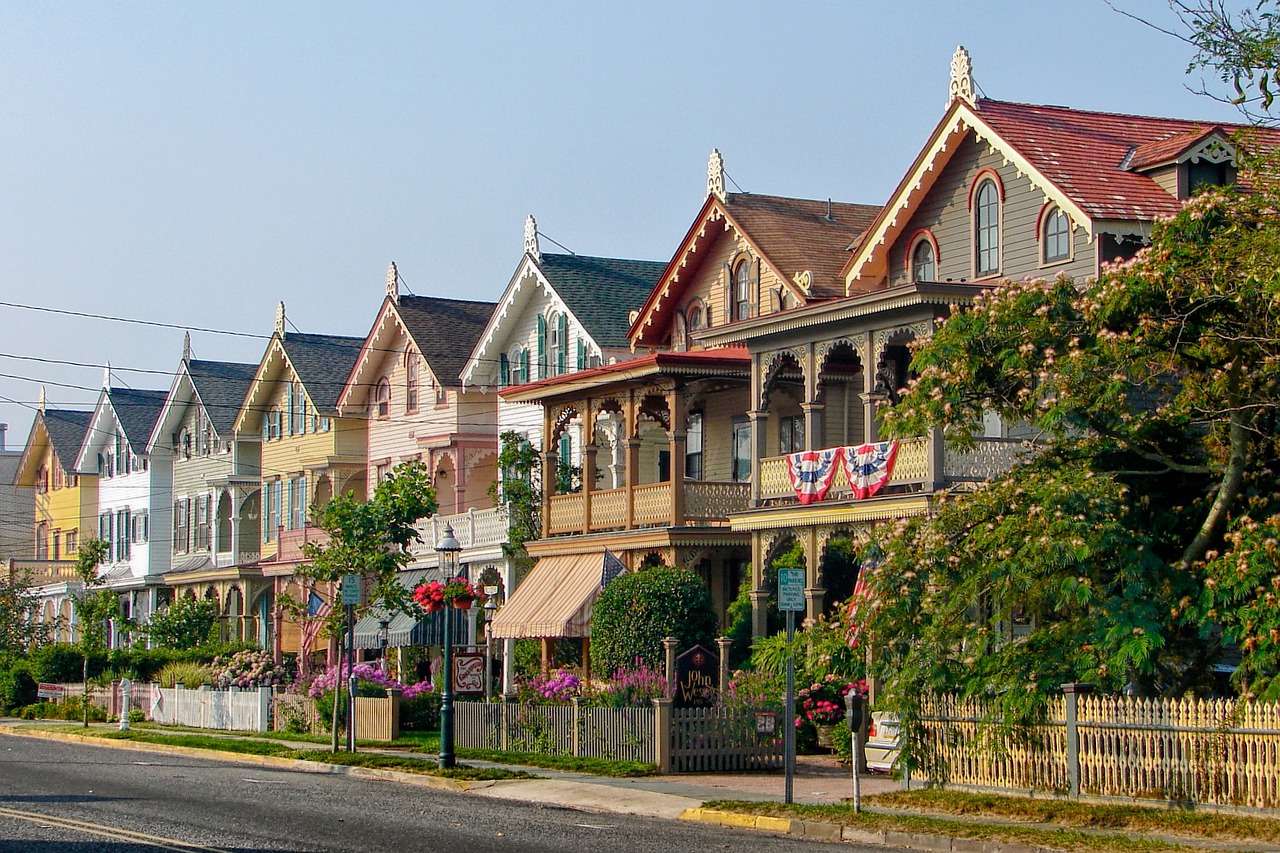New Jersey Cost Of Living - 2024 Guide
Explore the cost of living in New Jersey with our in-depth guide. Find out about housing prices, utility costs, transportation, and tips for saving money in the Garden State.
Aug 13, 2024586 Shares65.1K Views

Thinking about moving to New Jersey or just curious about the cost of living? This comprehensive guide will break down all the expenses you need to consider, from housing and utilities to transportation and groceries. Whether you're planning to settle in the bustling cities or the peaceful suburbs, we've got you covered.
Overview Of New Jersey's Cost Of Living
New Jersey is known for its vibrant lifestyle and proximity to major cities like New York and Philadelphia. However, living here comes with a higher-than-average cost. Let’s dive into the specifics to help you understand what to expect.
Housing Costs
Rent
Renting in New Jersey varies widely depending on where you choose to live. For instance, renting in Hoboken or Jersey City, close to New York City, can be much pricier than in suburban or rural areas.
- One-Bedroom Apartment:$1,600 - $2,500 per month
- Two-Bedroom Apartment:$2,000 - $3,200 per month
Tip: Look for rental deals in suburban areas if you’re working remotely or don’t mind a longer commute.
Buying A Home
If you’re considering buying a home, be prepared for high property prices, especially in coastal and city areas.
- Median Home Price:$350,000 - $500,000
- Property Taxes:2.21% of the home value, among the highest in the nation
Tip: Work with a local real estate agent to find the best deals and understand property taxes in different areas.
Utilities
Utility costs can add up quickly, so it’s important to budget for them.
- Electricity:$100 - $150 per month
- Water:$40 - $70 per month
- Gas:$50 - $100 per month
- Internet:$50 - $80 per month
Tip: Consider energy-efficient appliances to save on electricity and gas bills.
Transportation
Public Transportation
New Jersey offers an extensive public transportation network, making commuting easier, especially if you work in nearby cities.
Monthly Pass:$100 - $300, depending on the distance and type of service
Owning A Car
If you prefer driving, here’s what you’ll need to budget for:
- Gas Prices:$3.00 - $3.50 per gallon
- Insurance:$1,300 - $1,800 annually
- Maintenance:$500 - $1,000 annually
Tip: Regular maintenance can prevent costly repairs and keep your car running smoothly.
Groceries And Food
Food costs in New Jersey are higher than the national average, but there are ways to manage your budget.
- Monthly Grocery Bill for One Person:$300 - $400
- Dining Out:$15 - $25 per meal at a mid-range restaurant
Tip: Shop at farmers' markets and discount grocery stores to save on food expenses.
Healthcare
Healthcare is a significant expense, but New Jersey offers high-quality medical services.
- Health Insurance Premiums:$400 - $600 per month for an individual plan
- Doctor's Visit:$100 - $150 without insurance
Tip: Look for health insurance plans that offer good coverage at a reasonable cost.
Education
Public Schools
New Jersey has some of the best public schools in the country, thanks to high property taxes.
Average Annual Cost per Pupil:$15,000 - $20,000
Higher Education
The state’s universitiesare well-regarded, but tuition can be expensive.
- In-State Tuition:$10,000 - $20,000 per year
- Out-of-State Tuition:$20,000 - $35,000 per year
Tip: Explore scholarship opportunities and financial aid to reduce education costs.
Entertainment And Leisure
From beaches to cultural events, New Jersey offers plenty of recreational activities.
- Movie Ticket:$12 - $15
- Gym Membership:$30 - $60 per month
- State Park Entry Fee:$5 - $20 per vehicle
Tip: Take advantage of free or low-cost community events and outdoor activities.
Comparison With National Averages
Understanding how New Jersey's cost of living compares to the national average provides context for these expenses.
- Overall Cost of Living Index:120 (20% higher than the national average)
- Housing Index:140 (40% higher than the national average)
- Transportation Index:110 (10% higher than the national average)
Saving Tips
Living in New Jersey doesn't have to break the bank. Here are some tips to help you manage your expenses:
- Choose Suburban Areas:Consider living in less expensive suburban or rural areas.
- Public Transportation:Utilize public transportation to save on commuting costs.
- Energy Efficiency:Invest in energy-efficient appliances to reduce utility bills.
- Discount Programs:Take advantage of local discount programs and coupons.
Frequently Asked Questions About The Cost Of Living In New Jersey
What Is The Average Cost Of Living In New Jersey?
The average cost of living in New Jersey is about 20% higher than the national average, influenced by higher housing and transportation costs.
How Much Do Utilities Cost In New Jersey?
Monthly utilities in New Jersey typically range from $240 to $400, depending on usage and household size.
Is It Expensive To Own A Car In New Jersey?
Yes, owning a car in New Jersey can be expensive due to high insurance rates and gas prices. Expect to spend around $1,800 annually on insurance and $3.00 - $3.50 per gallon for gas.
What Are The Average Rent Prices In New Jersey?
Rent prices vary widely. A one-bedroom apartment typically costs between $1,600 and $2,500 per month, while a two-bedroom can range from $2,000 to $3,200.
Are Groceries Expensive In New Jersey?
Grocery costs in New Jersey are higher than the national average, with a monthly grocery bill for one person ranging from $300 to $400.
Conclusion
Living in New Jersey offers a vibrant lifestyle with close proximity to major metropolitan areas, but it comes at a price. Understanding the various components of the cost of living - from housing and utilities to transportation and healthcare - can help you make informed financial decisions. By exploring the tips and information provided, you can better navigate the financial landscape of this diverse state.
Latest Articles
Popular Articles